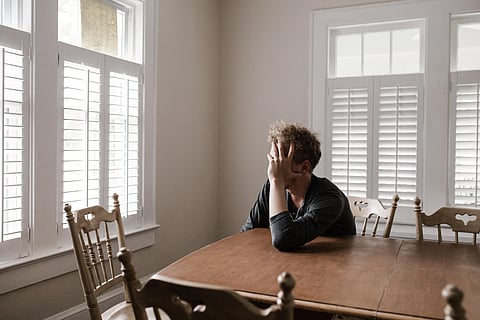

Stress beyond a certain point can negatively affect the health of an individual. It not only affects health but also directly affects mood, productivity, the individual’s relationship and also his or her quality of life. Dr Harsha GT, consultant psychiatrist, Manipal Hospital, Yeshwanthpur, in an interview with Aknisree Karthik delves into the causes and the steps one can take to relieve stress. Edited excerpts:
What is stress and what are the common reasons for stress?
Stress represents the effects of anything that threatens homeostasis. Stress can be physical, psychological or psycho-social. Everyday stressors include everything from daily commutes to paying our taxes. A few of the common stressors in daily life are injuries, infections, major transitions in life, death of a loved one, work/financial troubles, problems with family, unsafe environment and others.
What are the health implications of stress? What happens if we do not de-stress?
Acute stress response can cause increased blood pressure and spike fright response (increased heart rate, tremors, palpitations etc). The acute stress response may become maladaptive when it is triggered repeatedly or continuously. The consequences of chronic stress include heightened substance use, increased likelihood of accidents, sleep disturbances and development of eating disorders. It can also lead to cardiovascular issues, problems in the respiratory system, increases the chances of infections and faster progression of the disease. It also slows wound healing and recovery from surgery and individuals might have poor antibody response to vaccination.
Is there any simple exercise to de-stress?
Box breathing, which is also known as square breathing, is a simple method of focusing on your breath which involves sitting or lying down in a comfortable position with closed eyes. Breath in deeply through your nose for a count of a few seconds. Feel your lungs expand followed by holding the breath for another count of a few seconds then, exhale slowly through your mouth. Repeat the same cycle till you feel relaxed. This is one of the commonly practiced deep breathing/relaxation exercises which may help manage mild stress/anxiety, which can be practiced by individuals of any age/ sex in any setting.
What are the other ways to de-stress?
With the four As of stress management - avoid, alter, adapt, accept - stress can be reduced.
Avoid unnecessary stress - learn how to say no, avoid people who stress you out, take control of your environment and avoid hot-button topics (religion/politics).
Alter the situation - change the way you communicate and operate in life, communicate your concerns in an open and respectful way, be more assertive, find a balance between work, family, social activities and solitary pursuits and daily responsibilities and downtime.
Adapt to the stressor - re-frame problems, view stressful situations from a more positive perspective, look at the big picture and adjust your standard.
Accept the things you can’t change - some sources of stress are unavoidable, focus on things you can control, for example, the way you choose to react to problems, seek the positive side - opportunities for personal development and forgive, share your feelings.
A few other effective techniques of stress management are - exercise regularly, a balanced diet, mindfulness techniques, relaxation techniques and social media time.